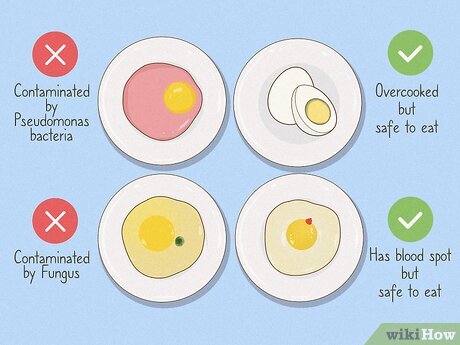Heart Attack Prevention: A Cardiovascular Surgeon’s Guide to Safeguarding Your Heart
By: Javid Amin
Heart attacks remain one of the leading causes of death worldwide, claiming millions of lives annually. Despite advancements in medical science, the best defense against heart disease is prevention. By understanding the risks and adopting healthier habits, you can significantly reduce your chances of experiencing a heart attack.
In this detailed guide, we’ll explore the top recommendations from leading cardiologists, including Dr. Jeremy London, a renowned cardiovascular surgeon, and Dr. Bipeenchandra Bhamre, a consultant cardiac surgeon at Sir H. N. Reliance Foundation Hospital. Together, they emphasize the importance of avoiding certain foods, habits, and lifestyle choices that can wreak havoc on your heart health.
Understanding Heart Attacks
A heart attack occurs when the blood flow to the heart is obstructed, usually by a buildup of fatty deposits, cholesterol, or other substances in the coronary arteries. This blockage, known as atherosclerosis, can rupture, forming a clot that prevents oxygen-rich blood from reaching the heart muscle. Without quick medical intervention, parts of the heart muscle can die, leading to severe complications or death.
Common Risk Factors:
- High blood pressure (hypertension)
- High cholesterol levels
- Smoking
- Obesity
- Sedentary lifestyle
- Diabetes
- Excessive alcohol consumption
- Stress
4 Critical Habits to Avoid for a Healthier Heart
1. Smoking: A Leading Cause of Cardiovascular Damage
Smoking is among the most detrimental habits for heart health. Cigarettes contain harmful chemicals, such as nicotine and carbon monoxide, which damage the lining of blood vessels, increase blood pressure, and reduce the oxygen supply to the heart. This combination significantly raises the risk of heart disease, stroke, and heart attacks.
Why It Matters:
- Smoking accelerates plaque buildup in arteries.
- It increases the likelihood of blood clots.
- It reduces the heart’s ability to pump efficiently.
What You Can Do:
- Quit smoking immediately. Seek support from cessation programs or nicotine replacement therapies.
- Avoid exposure to secondhand smoke, which also harms cardiovascular health.
2. Excessive Alcohol Consumption: A Silent Threat
While moderate alcohol intake may offer some cardiovascular benefits, excessive consumption is a major risk factor for heart disease. Alcohol increases blood pressure, raises triglyceride levels, and contributes to obesity—all of which strain the heart.
Why It Matters:
- Alcohol weakens heart muscles, leading to cardiomyopathy.
- It disrupts heart rhythms, causing arrhythmias.
- Excessive drinking promotes fat storage around vital organs.
What You Can Do:
- Limit alcohol to moderate levels: one drink per day for women and up to two for men.
- For those at high risk of heart disease, consider complete abstinence.
- Replace alcohol with healthier alternatives like herbal teas or infused water.
3. Soft Drinks: ‘Liquid Death’ for the Heart
Sugary beverages, including soft drinks and energy drinks, are loaded with added sugars that spike blood glucose levels. Over time, excessive sugar intake leads to obesity, diabetes, and high blood pressure, all of which increase the risk of heart disease.
Why It Matters:
- High sugar intake contributes to insulin resistance and diabetes.
- Sugary drinks increase triglycerides, a type of fat in the blood.
- They add empty calories, promoting weight gain.
What You Can Do:
- Replace soft drinks with healthier options like water, unsweetened green tea, or natural fruit juices.
- Check labels for hidden sugars in beverages.
- Reduce consumption gradually to avoid withdrawal cravings.
4. Refined Flour-Based Foods: A Hidden Culprit
Refined flour is a staple in many processed foods, including bread, pasta, and pastries. These foods lack essential nutrients and fiber, causing blood sugar spikes. The body quickly converts refined carbs into sugar, which, if not utilized, is stored as fat—particularly around the abdomen.
Why It Matters:
- Refined carbs contribute to inflammation, a key factor in atherosclerosis.
- They promote weight gain, especially visceral fat, which surrounds vital organs.
- High consumption increases the risk of Type 2 diabetes.
What You Can Do:
- Opt for whole-grain alternatives like brown rice, quinoa, and whole-wheat bread.
- Incorporate more fiber-rich foods, such as vegetables, legumes, and fruits.
- Limit consumption of processed snacks and desserts.
The Role of Diet in Heart Health
Dr. Bipeenchandra Bhamre emphasizes that diet plays a pivotal role in cardiovascular well-being. According to him, 80% of weight management comes from diet, while 20% is attributed to exercise. This underscores the importance of making informed dietary choices.
Heart-Healthy Foods to Include:
- Fatty Fish: Rich in omega-3 fatty acids that reduce inflammation and lower triglycerides.
- Leafy Greens: High in antioxidants and fiber, which support heart health.
- Nuts and Seeds: Packed with healthy fats, magnesium, and protein.
- Whole Grains: Promote healthy cholesterol levels and stabilize blood sugar.
- Berries: Loaded with antioxidants that combat oxidative stress.
- Avocados: Contain monounsaturated fats that improve heart function.
Understanding Hypertension: The ‘Silent Killer’
High blood pressure places immense strain on the heart, increasing the risk of heart attacks. Both excessive alcohol consumption and smoking exacerbate hypertension by narrowing blood vessels and increasing resistance against blood flow.
Warning Signs of Hypertension:
- Persistent headaches
- Shortness of breath
- Dizziness
- Blurred vision
When to Seek Medical Help
Recognizing the early signs of a heart attack is crucial for timely intervention. Common symptoms include:
- Chest pain or discomfort
- Shortness of breath
- Cold sweats
- Nausea or vomiting
- Lightheadedness or fainting
What You Can Do:
- Call emergency services immediately if you suspect a heart attack.
- Take aspirin (if recommended by a doctor) to reduce blood clotting.
- Stay calm and avoid exerting yourself.
Incorporating Physical Activity for a Stronger Heart
Regular exercise strengthens the heart muscle, improves circulation, and helps maintain a healthy weight. Dr. Bhamre recommends incorporating 40 minutes of moderate activity daily.
Best Exercises for Heart Health:
- Walking: Simple yet effective in improving cardiovascular fitness.
- Cycling: Strengthens the heart while being gentle on joints.
- Swimming: A full-body workout that boosts endurance.
- Yoga: Reduces stress and promotes relaxation, benefiting heart health.
Actionable Tips for Heart Attack Prevention
- Monitor Your Numbers: Regularly check blood pressure, cholesterol levels, and blood sugar.
- Maintain a Healthy Weight: Use a combination of diet and exercise to achieve your ideal weight.
- Stay Hydrated: Drink plenty of water to support overall health.
- Manage Stress: Practice mindfulness, meditation, or deep-breathing exercises.
- Schedule Regular Checkups: Consult your doctor for routine screenings and personalized advice.
Bottom-Line: Prioritizing Your Heart Health
Preventing a heart attack requires a proactive approach. By avoiding harmful habits like smoking, excessive drinking, and consuming sugary or refined foods, you can significantly reduce your risk. Incorporate a heart-healthy diet, stay physically active, and monitor your health regularly to ensure a long and vibrant life.
Dr. Jeremy London and Dr. Bipeenchandra Bhamre’s expert insights remind us that small, consistent changes can lead to substantial improvements in cardiovascular health. Take charge of your heart today—because prevention is always better than cure.




